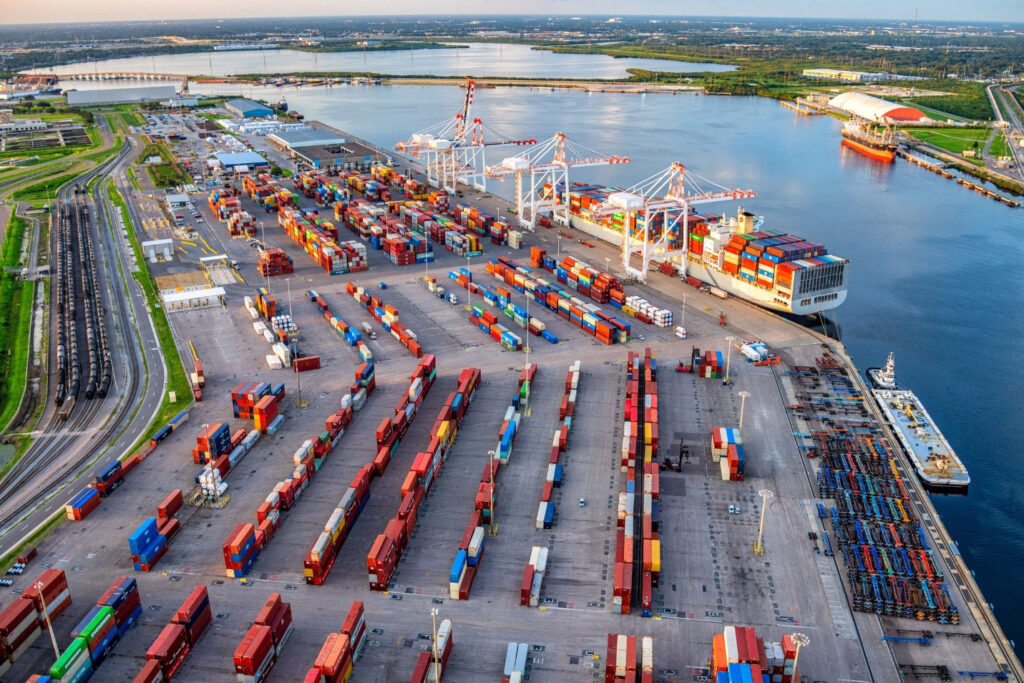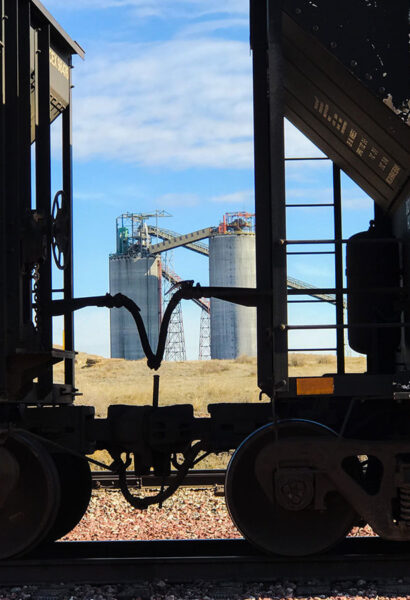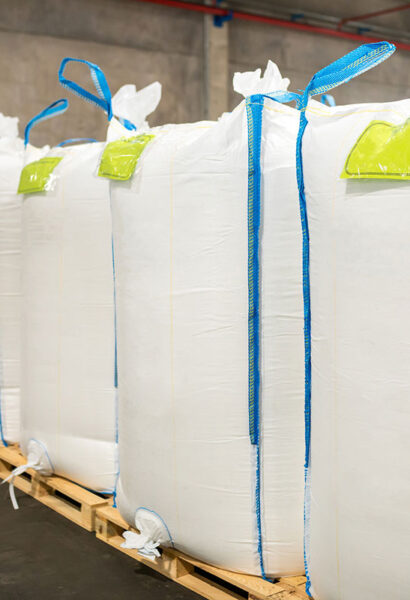Industrial Supply Chain Solutions & Logistics Consulting
PraxiChain Consulting brings decades of unique, specific expertise to solve complex logistics and supply chain challenges across diverse industrial sectors – from raw materials to finished products. Our deep understanding spans paper and pulp, grain and agricultural products, chemicals, minerals, and construction materials across global markets.
Our team comprises multiple senior-level logistics and operations veterans who have managed complex supply chains for major shippers and service providers. We are practitioners who understand your challenges because we’ve been in your seat. With transportation costs representing a significant portion of the sale price, we help clients turn logistics into a competitive differentiator.
Transform Your Industrial Supply Chain
Since its founding, industrial economy logistics has been a core competency of PraxiChain. Our earliest engagements began with some of the largest industrial companies in the world, assisting with transportation rate negotiations, site selection, distribution optimization, and a range of other services.
Global leaders of major shippers, transportation companies, and investors trust our results – we deliver transformative value through:
Strategic Supply Chain Diagnostics
Actionable Cost Optimization
Market Expansion Strategy
Risk Management & Resilience
Data-Driven Decision Support
Industry-Specific Solutions
Steel & Metals Supply Chain
Our Solutions Address:
Global Steel Market Overview
- Cyclical demand and price swings shape steel markets, spanning commodity and specialty products.
- Steel demand is driven by construction, automotive, and infrastructure due to its dual role as a raw material and finished product.
- Global pricing and trade flows heavily depend on China, which controls 50% of worldwide production and consumption.
- Multi-tiered networks emerge from the need for vertical integration across mining, production, and distribution.
Steel Industry Market Insights
- High capital costs and technical barriers create regional production clusters near consumption centers and ports.
- Weight-to-value ratios drive freight sensitivity, making local production and regional markets critical.
- Product degradation risks require specialized inventory management systems and storage solutions.
- Premium producers gain advantage through specialized steel products for automotive and wind turbine applications.
Construction Materials & Aggregates
Our Solutions Address:
Construction Materials Market Overview
- Market dynamics are shaped by housing starts, infrastructure spending, and regional development patterns
- Demand fluctuates with interest rates and government investment, creating unique forecasting challenges
- North American supply is heavily influenced by regional production constraints and environmental regulations
- Multi-channel distribution networks emerge from the need to serve diverse project types and locations
Construction Materials Industry Insights
- High transportation costs drive market regionalization, making local production and distribution critical
- Environmental permitting complexity creates supply constraints in high-growth metropolitan areas
- Production capacity limitations, particularly in cement, increase vulnerability to supply chain disruptions
- Weather-related disruptions and labor shortages affect both production scheduling and logistics planning
Material-Specific Supply Chain Challenges
- Last-mile logistics optimization due to high weight-to-value ratios and delivery radius constraints
- Seasonal demand fluctuations require flexible storage and distribution capacities
- Quarry-to-jobsite traceability requirements for infrastructure and government projects
- Specialized equipment needs for loading, unloading, and material handling
Cement:
- Time-sensitive delivery requirements due to limited product shelf life, especially for ready-mix operations
- Storage silo capacity management at distribution terminals and batch plants
- Rail-to-truck transfer optimization for efficient multi-modal transportation
- Production scheduling complexity to balance kiln efficiency with fluctuating regional demand
Lumber:
- Dimensional variety management requires specialized handling and transportation equipment
- Moisture control throughout the supply chain to maintain product quality and prevent damage
- Inventory visibility challenges across distributed yards and regional distribution centers
- Cross-border logistics complexity due to Canadian lumber import dependencies
Grain & Agricultural Markets
Our Solutions Address:
Grain & Agricultural Market Overview
- Production patterns are shifting across the U.S. corn belt and Canadian prairie provinces
- Asian market demand, particularly from China, continues to drive export opportunities
- Global conflicts and adverse weather events create price volatility and supply uncertainties
- Seasonal harvest peaks create predictable yet challenging capacity constraints throughout the supply chain
Grain Industry Supply Chain Insights
- Rail capacity limitations and aging infrastructure create critical bottlenecks at transportation hubs
- Labor shortages at ports and in trucking operations disrupt delivery schedules and increase costs
- Terminal storage facilities face capacity constraints during peak harvest periods
- Technology adoption lags create inefficiencies in inventory management and logistics coordination
Material-Specific Supply Chain Challenges
- Multi-modal transportation coordination between truck, rail, and barge movements
- Quality preservation during storage transitions from farm to terminal facilities
- Delivery timing optimization for export market requirements and vessel scheduling
- Regional production shifts requiring logistics network adaptations
Wheat & Canola:
- Canadian prairie production variability due to increasingly challenging growing conditions
- Cross-border logistics complexity for North American distribution
- Grade segregation requirements throughout storage and transportation processes
- Export documentation compliance for varying international market standards
Paper and Pulp Markets
Our Solutions Address:
Paper and Pulp Market Overview
- European and North American producers face elevated energy costs while Chinese production creates price pressure
- Raw material expenses, particularly for virgin fiber, remain historically high despite moderation in recovered paper
- Structural decline in printing and writing paper drives industry consolidation and capacity rationalization
- Packaging segment growth has stabilized after pandemic peaks, supported by ongoing e-commerce demand
Paper Industry Supply Chain Insights
- Limited container availability and elevated freight rates impact margins and distribution capabilities
- Transportation capacity constraints stem from driver shortages and increased fuel costs
- Rail service disruptions and port congestion create critical bottlenecks for producers and distributors
- Higher inventory levels maintained due to logistics uncertainties, which affect working capital efficiency
Material-Specific Supply Chain Challenges
- Industry consolidation requires continuous network optimization as production facilities rationalize
- Dual-market dynamics create divergent logistics needs between declining paper and growing packaging segments
- Global trade imbalances affect container availability and pricing for intercontinental shipments
- Sustainability initiatives drive changes in material sourcing, handling, and transportation requirements
Farm & Farm Products
Our Solutions Address:
Farm & Farm Products Market Overview
- Chronic transportation constraints have split markets into regional subsystems with limited arbitrage
- Processors maintain higher safety stocks at increased carrying costs to ensure operational stability
- Traditional hub-and-spoke distribution models face mounting pressure from delivery unpredictability
- Secondary markets away from major rail corridors experience disproportionate vulnerability to disruptions
Agricultural Processing Supply Chain Insights
- Rail congestion creates irregular delivery patterns that significantly complicate production scheduling
- Legacy infrastructure optimized for unit train service struggles with new transportation realities
- Regional storage capacity constraints limit the ability to manage extended product dwell times
- Industry strategy shifts toward regional redundancy over traditional efficiency optimization
Material-Specific Supply Chain Challenges
- Processing facility location decisions require reassessment as transportation corridors evolve
- Inventory carrying cost increases strain on working capital and financial performance metrics
- Infrastructure misalignment between existing facilities and emerging transportation patterns
- Limited modal alternatives in secondary markets create single points of failure in distribution networks
Chemicals Market
Our Solutions Address:
Chemicals Market Overview
- Global chemical market shows mixed performance with projected growth of 3.5% in 2024 and 3.1% in 2025
- Asia/Pacific leads regional growth at 4.8%, while Europe rebounds at 1.9% following energy-related declines
- Agricultural and specialty chemicals demonstrate particular strength with respective growth of 5.5% and 3.8%
- Latin America remains the only contracting region due to inflation and productivity challenges
Chemical Industry Supply Chain Insights
- Regulatory compliance requirements create complex transportation and storage constraints
- Multi-modal shipping optimization balances cost control with specialized handling needs
- Destocking cycle has concluded, but weak manufactured goods demand continues to impact volumes
- Safety protocols and environmental compliance drive logistics planning and network design
Product-Specific Supply Chain Challenges
- Hazardous material classification differences between regions complicate international movements
- Agricultural chemical seasonal demand patterns require flexible capacity and inventory positioning
- Specialty chemical production requires precise delivery timing of raw material inputs
- Energy cost volatility impacts both production economics and transportation decision-making
Critical Minerals Market
Our Solutions Address:
Critical Minerals Market Overview
- Battery materials experienced significant price volatility following dramatic increases in previous years
- Clean energy technologies, particularly electric vehicles, drive robust demand growth across key minerals
- Supply expansion from Africa, Indonesia, and China has outpaced demand, creating inventory buildups
- Global market value reached USD 325 billion in 2023, with potential to exceed USD 770 billion by 2040
Critical Minerals Supply Chain Insights
- Mining operations show geographical diversification, while refining remains concentrated in China
- Indonesia has emerged as a dominant force in nickel, while DRC maintains leadership in cobalt
- Environmental considerations, including water stress and carbon-intensive processing, affect site selection
- Achieving supply chain diversification goals requires accelerated development in alternative regions
Material-Specific Supply Chain Challenges
- Geopolitical tensions create strategic material access risks requiring multi-source procurement strategies
- Processing concentration creates bottlenecks, with China controlling 90% of battery-grade graphite production
- Environmental and social governance requirements add complexity to supplier selection and validation
- Price volatility necessitates sophisticated risk management and contract structuring approaches
Latest Market Insights

Supply Chain Evolution: Industrial Market Insights Amid Global Disruptions
The global supply chain landscape continues to evolve in response to recent geopolitical tensions, particularly the ongoing conflicts in Ukraine and the Middle East affecting maritime routes. In North America, the rail sector has shown remarkable resilience, with Class I railroads investing heavily in infrastructure modernization and implementing precision scheduled railroading (PSR) principles. Despite these improvements, the industry faces persistent challenges with labor relations and capacity constraints at key intermodal hubs.
Our Industrials Experts
Featured Expert

Rick D. Blasgen
Project Manager
Expertise
- Supply Chain Management
- Logistics Operations Competitiveness
- Inventory Management
- Distribution Center Operations
- Transportation Management
Highlights
- President & CEO, Emeritus, CSCMP
- Chair, Committee on Supply Chain
- Senior VP, Integrated Logistics at ConAgra Foods
- VP, Supply Chain at Kraft and Nabisco
- Leading Authority on Supply Chain Management
Rick D. Blasgen is president and chief executive officer, emeritus, and current strategic advisor, of the Council of Supply Chain Management Professionals (CSCMP) in Lombard, Illinois, USA. He is one of the country’s leading authorities on supply chain management with extensive experience in inventory management, order processing, transportation, and distribution center operations management.
Learn MoreChris Adderton
Project Manager
Expertise
- Supply Chain Design
- Market Analysis
- Logistics Procurement
- Assessment & Optimization
- Due Diligence
Raul Carrasco
Project Manager
Expertise
- Supply Chain Design
- Logistics Procurement
- Market Analysis
- Assessment & Optimization
- Due Diligence
Belinda Hess
Senior Consultant
Expertise
- Supply Chain Design
- Logistics Procurement
- Market Analysis
- Customer Service/Experience
Eric Johnson
Project Manager
Expertise
- Supply Chain Design
- Logistics Procurement
- Market Analysis
- Assessment & Optimization
- Due Diligence
Margaret Lopez
Wes Mailhos
Senior Consultant
Expertise
- Supply Chain Design
- Market Analysis
- Logistics Procurement
- Assessment & Optimization
- Due Diligence
Michelle M. Meyer, SCPro™
Project Manager
Expertise
- Supply Chain Strategy
- Project Management
- Process Improvement
- Design & Implementation
- Systems Implementation
Robert Sawchuk
James Shefelbine
Principal
Expertise
- Supply Chain Design
- Market Analysis
- Logistics Procurement
- Assessment & Optimization
- Due Diligence
Lynette Sieber
Senior Consultant
Expertise
- Supply Chain Design
- Market Analysis
- Logistics Procurement
- Assessment & Optimization
- Due Diligence
Steve Truitt
John Tuttle
Project Manager
Expertise
- Supply Chain Design
- Market Analysis
- Logistics Procurement
- Assessment & Optimization
- Due Diligence






